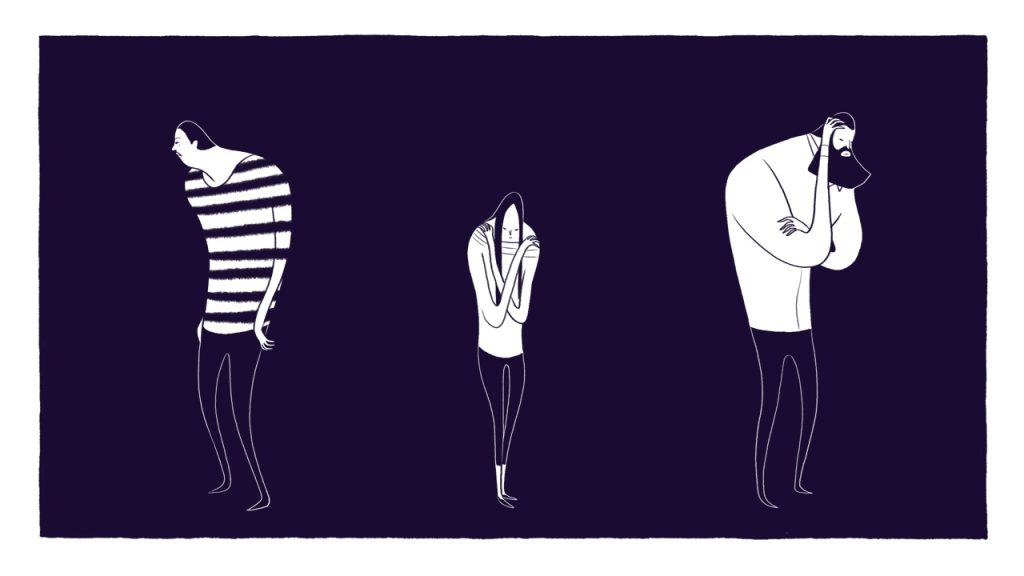Can I Use CRAFT When My Addicted Loved One Has a History of Trauma?

One of our members on the Allies in Recovery member site expressed deep concern and asked for guidance on how best to help his loved one who is battling with an addiction to cocaine, alcohol use, mental health issues (including depression, anxiety, self-harm…) and a history of trauma.

In this post, Dominique Simon-Levine addresses his concerns about this trauma-informed addiction:
I am touched by the love you have for your girlfriend and your willingness to help. Really, so many people run when they see substance abuse. Thank goodness for people like you who try to understand and help.
Cocaine is a powerful drug. It takes you from 0 to 100, to the top of the world, in seconds: problems melt away, you feel mentally sharp, creative, completely vibrant. Within 20 minutes or so, however, the high fades, emotions sink, and you land somewhere below 0 … until you take some more. For someone already struggling with depression and anxiety, this emotional yoyo-ing is further exacerbated.
Your girlfriend’s mental fragility, combined with the alcohol and drugs, can put her at high risk for hurting herself. The question is what you can or should do about this with the time that remains.
What you can’t control
As you lay out in your comment, there are several things you’d like to help her with: getting her to be honest with you, to stay away from friends who use, to considering a move…. The reality though is that embracing honesty and changing one’s social network happen once there is some commitment to sobriety, not before. These things are also outside your control.
What you can control
Here’s what IS under your control:
- your reactions to her, and
- the help you provide in shepherding her towards critically needed services for her addiction, mental illness, and the effects of serious trauma.
I can’t say this enough: Step one is to figure out treatment for your girlfriend.
Follow our method for finding treatment (available to Allies in Recovery members, learn more here), and include something from each category of treatment if possible (see our post “How to Help Your Loved One Succeed at Recovery”).
If trauma fuels the addiction, treatment should also address the trauma
Your girlfriend may benefit from gender-specific treatment and self-help. As for self-help groups, call them first to learn about women-only meetings.
Trauma-informed substance abuse treatment is going to be key. Studies vary, but the rate of past trauma for women struggling with addiction is extraordinarily high, more than 75%.
The federal government discusses trauma informed treatment and provides some guidelines on what to look for (see SAMHSA’s page on this).
Your friendship will likely mean a lot to your girlfriend, hopefully beyond a romantic relationship. You are leaving the country. Your influence at this time is limited but also potentially transformative. You talk about finding the words, and the idea of tough love. You are someone serious in her world who deeply cares for her. Your words along with the list of options for help – this is what you can do.
A suggested script:
Perhaps you say something like this:
I love you and will continue to love you even after I leave. I am deeply concerned for your wellbeing. From what I see, you are at a crossroads. Taking drugs and drinking are making things much worse for you. It tears me up to see it.
Promise me you will think about what I am saying.
You have a chance of living a very different life, one that’s based on safety and light. What has happened in your life is deeply unfair. What you do going forward though is your responsibility. I want so much for you to focus on getting better. Please consider looking at this list. Before I leave the country, I would like to help you get to one or more of these places.
I have thought a lot about this. This list is the most important gift I can leave with you. Please consider trying. I love you.
Your insights are impressive, your commitment heartwarming. Thank you for caring and my very best wishes.
Join the Allies in Recovery member site today for full, unlimited access to our e-learning platform, expert guidance, and the chance to connect with others in your situation. Learn more here.
